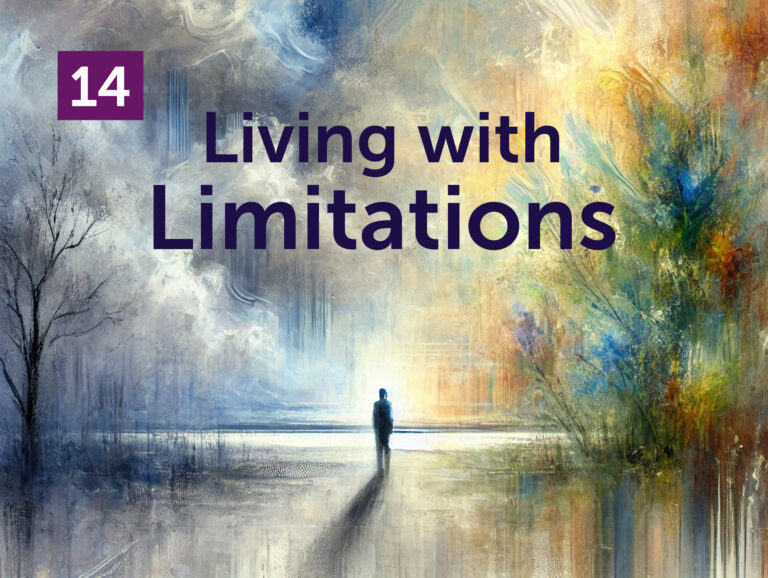Charlotte
So, thinking about how how we help people into wholeness – I use the word wholeness much more frequently than healing. I don’t like healing as a word, I’ll be honest – how do we help people into wholeness? One of the things that we found was that a lot of members of the disability group (not so much for me) felt they did have to perform their pain to get help in church. They have to tell people all the time that they’re sick or that things are difficult. And, like you say, that’s demoralising isn’t it? Pain, or disability, is real and we don’t want to minimise it. Yes, we need help for it and we need support. But the only way to get out of bed every day is also to consider yourself as a full human. You can’t just consider yourself ill, you know?
If we want people to take us seriously, they cannot expect us to perform our pain for them. That balance is something I struggle with a lot, to be honest.
Craig
Yeah. So how do you understand the motivational drive of Jesus to act so differently? I know that I’m asking you to put yourself into the mind of Jesus, and that’s an impossible thing to do, but he does seem to have a completely different instinct.
Do you have any insights as to where he’s coming from?
Charlotte
Do I have any insights? I think…my opinion is that there is something different going on in each of the Gospels to do with what wholeness is. And I think Jesus’s approach to people is nearly always to do with them being fully human. Sometimes our gospel writers use those miracles as kind of exemplars of difference: this is how you deal with people who are different or excluded. Usually there’s a theological point for their specific gospel.
Our gospel writers are writing a narrative. And there’s nearly always a reason for the way a healing is written. So Matthew’s miracles, for example, nearly always come in sets. Generally there’ll be a physical healing, something to do with the weather or creation, and there will be some sort of spiritual moment. Because the stories are trying to explain that Jesus is God of everything, and Matthew likes to cover his bases. He places them so, just in case you you’re tempted to think that God is a God of healing, but not the God of the weather. No, God can do all of these things. So sometimes our healings are just one part of a bigger whole and I think we have to take that into account. They’re not there just to talk about disability, but we isolate them.
So I do think Jesus is generally going for wholeness, and there’s nearly always another element to it. He heals somebody and he speaks about the spiritual situation, or he sends them to a priest, or he touches the earth. There’s something else happening that is not just about “ how do I fix this?” And I don’t see Jesus ever talking about disability as a problem. It just is a thing that is in the world. So again, theologically we’ve made disability a problem to be solved, but I’m not sure that that’s what we see in the Gospels: It’s a way that Jesus interacts in the world, and people are disabled in the world, so Jesus interacts with disabled people.
to be continued…
Do you have any comments or questions? You can contact us here: hello@northumbrian.org


